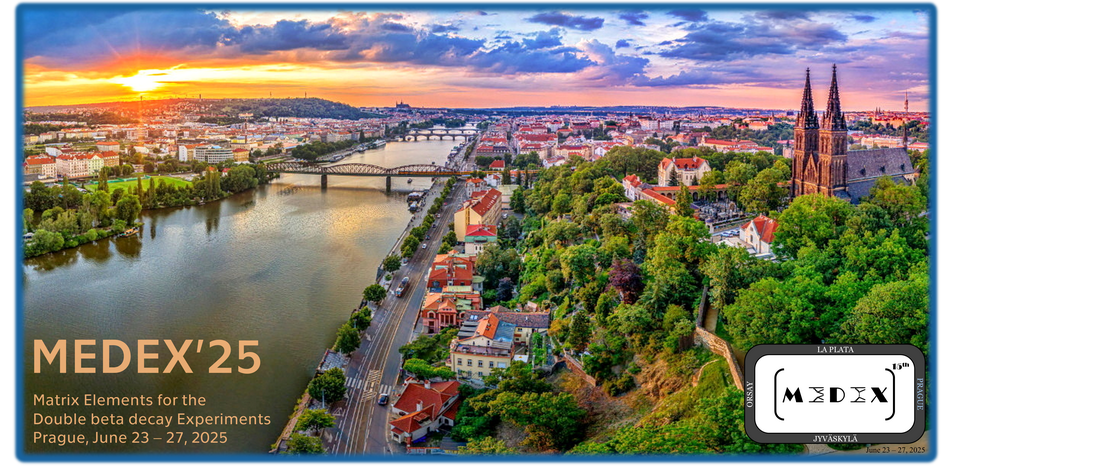Speaker
Description
At present, there is limited experimental data on low-energy inelastic neutrino scattering on nuclei. For neutrino energies below 100 MeV, measurements are available only for a few nuclear targets. The analysis of these data strongly depends on the structure of the charge-exchange strength function, which characterizes the intensity of transitions in the final nucleus as a function of excitation energy. The strength function exhibits a resonant structure, which is observed in nearly all charge-exchange reactions and is mainly manifested through the giant Gamow–Teller resonance, the analog resonance, and low-lying pygmy resonances.
This work investigates the interaction of a neutrinos from the Spallation Neutron Source at Oak Ridge National Laboratory with a detector based on a $^{127}$I target. The resonant structure of the charge-exchange strength function is calculated, and its influence on the neutrino capture cross section by $^{127}$I nuclei is studied. The isobaric resonances are analyzed within the framework of the self-consistent theory of finite Fermi systems. Neutrino capture cross sections are calculated taking into account the resonance structure of the strength function. The role of high-energy neutrinos in neutron emission leading to the formation of $^{126}$I and $^{125}$I isotopes is examined.

